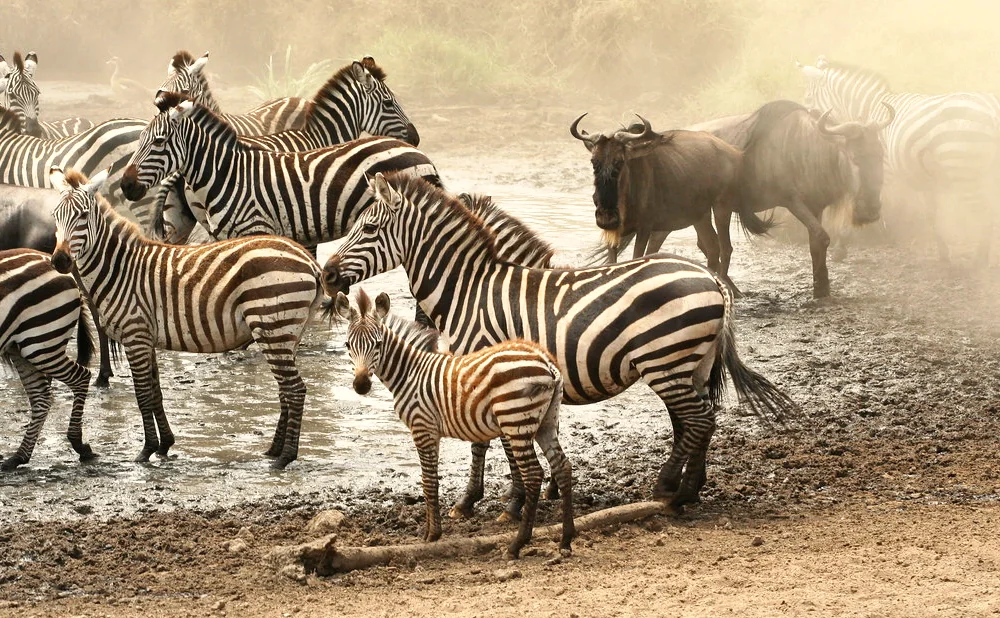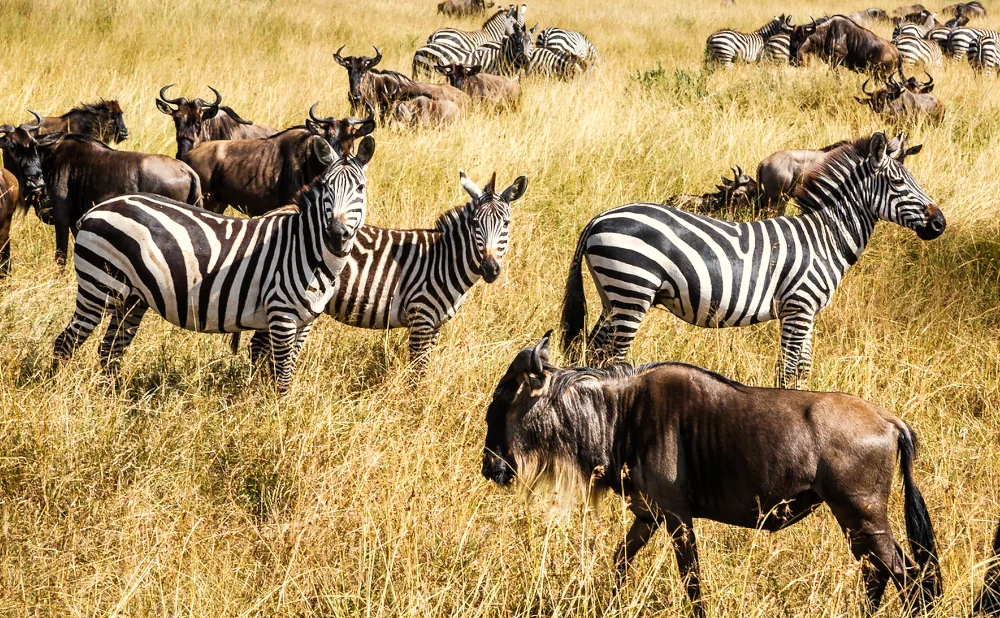Essential Tips for Successful Safari Booking
Embarking on a safari is a dream for many. It's an opportunity to witness wildlife in their natural habitat, experience diverse cultures, and immerse oneself in the beauty of untamed landscapes.
However, planning and booking a safari can be a daunting task. From choosing the right destination to selecting a reputable safari operator, there are numerous factors to consider.
This guide aims to simplify the process. It provides essential tips for successful safari booking, whether you're a first-time adventurer or a seasoned traveler.
We'll delve into various aspects of safari planning. These include understanding different safari types, choosing the best time to visit, and tips on packing for your adventure.
We'll also discuss the importance of sustainable travel practices and respecting wildlife.
So, let's embark on this journey together and ensure your safari booking experience is as smooth and rewarding as the adventure itself.
Understanding Safari Types and Destinations
The first step in planning your safari is to define the type of experience you're seeking. Are you interested in wildlife, cultural encounters, adventure, or luxury?
Wildlife safaris are the most popular, offering opportunities to see animals in their natural habitat. Destinations like Ranthambore and Tadoba are renowned for tiger spotting.
Cultural safaris provide a chance to interact with local communities. You can learn about their traditions, customs, and way of life.
Adventure safaris often involve activities like hiking, canoeing, or hot air balloon rides. Luxury safaris, on the other hand, offer high-end accommodation and services in the heart of the wilderness.
Understanding these options will help you choose the right safari destination based on your interests and preferences.
Best Time to Book a Safari in Africa
The best time to book a safari in Africa depends on your chosen destination and wildlife interests. Each region has its own optimal viewing periods.
For instance, the Great Migration in East Africa is a spectacle best witnessed between July and October.
In Southern Africa, the dry winter months from May to October are ideal for wildlife viewing. Animals congregate around water sources, making them easier to spot.
Remember, booking your safari during the peak season may require planning well in advance due to high demand.
Choosing Between Group and Private Safaris
Group safaris can be a cost-effective option. They offer a chance to meet like-minded travelers and share experiences.
However, they may lack flexibility. The itinerary is often fixed, with little room for personal preferences.
Private safaris, on the other hand, offer a personalized experience. You can tailor your itinerary to your interests and pace.
Yet, they can be more expensive. Consider your budget and preferences before making a decision.
Selecting a Reputable Safari Operator
Choosing the right safari operator is crucial. It can make or break your safari experience.
Look for operators with a proven track record. They should have positive reviews and testimonials from past clients.
Also, consider their commitment to sustainable tourism. They should follow ethical practices and contribute to wildlife conservation.
Understand their cancellation and refund policies too. This can save you from potential hassles later.
Lastly, ensure they offer good customer service. They should be responsive and willing to answer your queries.
Accommodation Options on Safari
Safari accommodation can range from luxury lodges to basic camps. Your choice depends on your comfort level and budget.
Luxury lodges offer top-notch amenities. They often have stunning views of the wildlife and landscape.
Camps, on the other hand, offer a more authentic experience. They bring you closer to nature.
Remember, the type of accommodation can greatly influence your safari experience. Choose wisely.
Visa and Vaccination Requirements
Before booking your safari, check the visa requirements. Each African country has its own rules.
Some countries offer visas on arrival. Others require you to apply in advance.
Also, consider health precautions. Certain destinations may require specific vaccinations.
Staying informed will help ensure a smooth safari experience.
The Benefits of Early Safari Bookings
Booking your safari early has many benefits. It gives you a wider choice of accommodations and dates.
Popular safari destinations can get booked up quickly. Early booking ensures you secure your preferred spot.
It also allows for better planning. You have ample time to prepare for your trip.
Lastly, early bookings can sometimes come with discounts. It's worth checking with your safari operator.
Last-Minute Safari Bookings: Pros and Cons
Last-minute safari bookings can be a gamble. They can offer significant savings, especially during off-peak seasons.
However, availability can be a major issue. You may not get your preferred accommodation or dates.
Also, last-minute bookings leave little time for thorough planning. This can lead to unforeseen challenges.
In conclusion, weigh the potential savings against the risks before opting for a last-minute safari booking.
Reading Reviews and Testimonials
Reviews and testimonials are valuable resources. They provide firsthand insights into the safari experience.
Look for reviews on multiple platforms. This ensures a balanced perspective.
Pay attention to recurring themes. They indicate consistent strengths or weaknesses of the safari operator.
In conclusion, reviews and testimonials can guide your decision-making process. They help you set realistic expectations for your safari.
Transportation to and Within Safari Destinations
Transportation is a key aspect of your safari. It starts with reaching your chosen destination.
International flights are common for reaching African countries. Some may require multiple layovers.
Once there, consider local transportation. This includes charter flights, road transfers, or self-driving.
In conclusion, plan your transportation wisely. It ensures a smooth and enjoyable safari experience.
Packing Tips for Your Safari
Packing for a safari requires careful thought. You need to balance comfort, utility, and necessity.
Clothing should be lightweight and breathable. Opt for neutral colors to blend with the environment.
Don't forget essential gear like binoculars, camera, and sun protection. Also, pack a reusable water bottle to stay hydrated.
In conclusion, packing smartly can enhance your safari experience. It ensures you are prepared for all situations.
The Importance of Travel Insurance
Travel insurance is a must for any safari. It provides a safety net in case of unforeseen events.
It can cover medical emergencies, trip cancellations, or lost luggage. Make sure your policy includes evacuation coverage.
Remember to read the fine print. Understand what is covered and what is not.
In short, travel insurance gives you peace of mind. It allows you to enjoy your safari without worrying about potential mishaps.
Respecting Wildlife and Park Rules
A safari is a chance to witness wildlife in their natural habitat. It's crucial to respect their space.
Follow park rules at all times. These are designed to protect both you and the animals.
Never feed or disturb the animals. Remember, you are a guest in their home.
By respecting wildlife and park rules, you contribute to the conservation of these magnificent creatures.
Engaging a Local Guide
A local guide can enhance your safari experience. They possess in-depth knowledge of the terrain and wildlife behavior.
Guides can help spot elusive animals and explain their behaviors. This adds an educational aspect to your safari.
They also ensure your safety during game drives. Their expertise is invaluable in navigating the wild.
Consider engaging a local guide for a more enriching and safe safari experience.
Online Safari Booking Steps
Booking a safari online is convenient and straightforward. Start by researching reputable safari operators.
Look for operators that offer the type of safari you want. Check their availability and pricing.
Before booking, read the terms and conditions carefully. Pay attention to the cancellation policy.
Finally, proceed to book your safari. Ensure you receive a confirmation of your booking.
Understanding Cancellation and Refund Policies
Cancellation and refund policies vary among safari operators. It's crucial to understand these before booking.
Some operators offer full refunds if you cancel well in advance. Others may charge a cancellation fee.
In case of unforeseen circumstances, a flexible cancellation policy is beneficial. Make sure you're comfortable with the terms.
Remember, travel insurance can cover cancellation costs. Consider this when planning your safari.
Budgeting for Your Safari: Hidden Costs
Budgeting for a safari involves more than just the booking cost. There are often hidden costs to consider.
For instance, tips for guides and staff can add up. It's customary to tip in many safari destinations.
Also, consider the cost of visas, vaccinations, and travel insurance. These are essential expenses.
Lastly, don't forget about personal expenses. These include souvenirs, extra activities, and meals not included in your package.
Preparing for an Unforgettable Safari Experience
Booking a safari is an exciting process. It's the first step towards an unforgettable adventure.
Remember, the key to a successful safari is thorough preparation. This includes understanding your preferences, researching, and budgeting.
With these safari booking tips, you're now equipped to plan your dream safari. It's time to embark on a journey of a lifetime.
Finally, always remember to respect the wildlife and local communities. Your actions can contribute to the sustainability of these incredible destinations.











